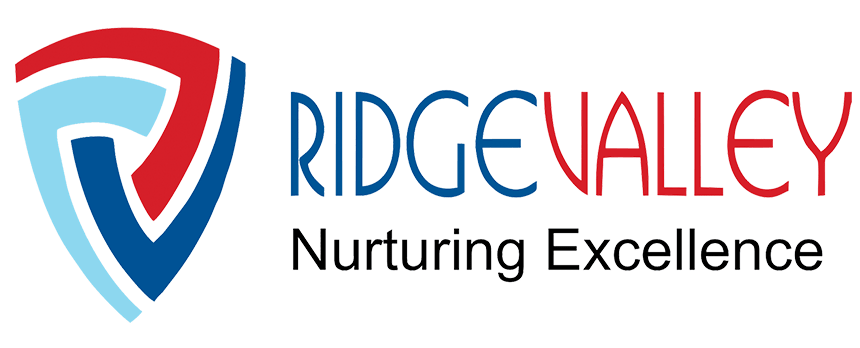Introduction:
Education today is no longer confined to rote learning or memorizing facts for exams. At Ridge Valley School, the top Cbse schools in Gurgaon where in an era that values innovation, emotional intelligence, and problem-solving, schools are reimagining how CBSE learning is delivered. The focus has shifted from repetition to understanding, from standardization to creativity, and from teacher-led instruction to student-led exploration.
The CBSE schools are leading this educational transformation by cultivating classrooms that encourage curiosity, imagination, and deep conceptual clarity. Their aim is simple — to empower children to learn not just for grades but for life.
At the heart of this transformation lies the belief that every learner has unique potential that must be nurtured through creativity, experience, and conceptual depth. This redefined approach to CBSE learning ensures that students become confident thinkers and compassionate global citizens.
About Us:
At Ridge Valley School, we are redefining how CBSE learning is experienced—focusing on creativity and conceptual understanding instead of rote memorisation. Our curriculum blends inquiry-based learning, design thinking, maker-spaces and interdisciplinary projects that invite students to explore the “why” behind every concept. Complementing this are robust extracurricular platforms—innovation labs, music and drama studios, eco-climate action forums and our science-park exhibitions—that allow learners to apply ideas in authentic, expressive ways. Annual events like the “Inspire Manak” science fair and eco-farming drives reinforce conceptual learning through action. We believe that when students can create, analyze and apply, true understanding follows—and education becomes preparation for life, not just exams.
1. Moving Beyond Memorization: The Shift Toward Conceptual Clarity
Traditional education often emphasized the “what” more than the “why.” However, in today’s world, understanding why something works is far more valuable than simply recalling what it is.
Modern classrooms under the CBSE framework are increasingly focusing on conceptual understanding—encouraging students to connect theory with application. Instead of memorizing definitions, learners explore real-world scenarios, analyze outcomes, and derive meaning through inquiry and experimentation.
For instance, in mathematics, rather than just solving equations, students are taught to identify patterns, apply logic, and understand the reasoning behind formulas. Similarly, in science, lessons integrate hands-on experiments that make abstract ideas come alive.
This kind of conceptual depth prepares learners for the unpredictable challenges of the 21st century — from problem-solving and decision-making to innovation and leadership.
2. Creativity as the Core of Modern Learning
Creativity isn’t limited to art or literature — it’s a mindset that drives exploration, innovation, and expression across every subject. The CBSE schools embed creativity into every learning experience.
Whether it’s designing eco-friendly models in environmental science, dramatizing historical events in social studies, or writing reflections in literature classes, students are constantly encouraged to think differently.
Creative learning inspires curiosity, improves engagement, and strengthens retention. It empowers students to look at problems from multiple perspectives and find original solutions. Most importantly, it builds self-confidence — helping children realize that their ideas matter and that learning can be joyful.
3. Integrating Technology to Reinforce Conceptual and Creative Growth
Digital transformation in education has opened new doors for how CBSE learning can be delivered. Forward-looking schools are leveraging technology as a creative and conceptual aid, not just a convenience.
Smart classrooms, interactive simulations, and AI-driven learning platforms personalize education for every student. For example, adaptive tools assess a learner’s progress in real time and suggest targeted exercises to strengthen weak areas.
Moreover, coding, robotics, and digital art labs introduce students to the technology-driven world in which they will build their futures. By merging technology with creativity, schools prepare students not just to consume digital tools — but to create with them.
4. Experiential Learning: Where Concepts Come to Life
Conceptual understanding flourishes best when learners experience what they study. This is where experiential learning plays a vital role.
Modern CBSE classrooms are shifting from theory-based learning to hands-on exploration. Activities such as science fairs, maker labs, student-led projects, and field research encourage learners to apply academic knowledge to real-world situations.
For example, environmental science projects may involve analyzing local ecosystems, while business studies might include designing a mini startup model. Such experiences reinforce theoretical knowledge and instill a sense of ownership in learning.
Students not only understand concepts better but also develop life skills such as teamwork, leadership, and critical thinking.
5. Teacher as a Facilitator: Guiding Inquiry and Imagination
In the redefined CBSE learning model, teachers play a more dynamic role — shifting from lecturers to learning facilitators. Their focus is not merely on delivering lessons but on creating experiences that spark curiosity.
Teachers design lessons that blend inquiry-based learning, visual aids, and collaborative tasks. Instead of providing answers, they guide students to discover them. This process empowers learners to ask meaningful questions, analyze information critically, and express their perspectives confidently.
Ongoing teacher training programs also ensure educators stay updated with global teaching methodologies — integrating neuroscience, emotional intelligence, and creativity-driven pedagogy into daily practice.
6. Interdisciplinary Learning: Breaking the Boundaries Between Subjects
Real-life problems don’t come in subject-specific silos — and neither should learning. The CBSE schools recognize this by adopting interdisciplinary learning frameworks that blend subjects seamlessly.
For instance, a project on renewable energy may combine concepts from physics, economics, and environmental studies. Similarly, storytelling might be used to teach history, while design thinking may enhance science or social projects.
This cross-disciplinary approach deepens conceptual connections and nurtures well-rounded thinkers who can connect dots between diverse ideas — a skill essential for tomorrow’s innovators.
7. Building Emotional and Social Intelligence Alongside Academics
Academic success alone doesn’t define true education. Emotional intelligence, empathy, and resilience are equally critical to thriving in today’s complex world.
Progressive CBSE schools prioritize social-emotional learning (SEL) to help students understand themselves and others better. Activities like mindfulness, peer collaboration, community outreach, and reflective journaling teach children to communicate effectively, manage stress, and develop compassion.
This emotional grounding supports creativity and curiosity, as students feel psychologically safe to explore, make mistakes, and grow. A nurturing school culture where every child feels valued helps transform education into a journey of self-discovery.
8. Encouraging Student Voice and Choice
Empowerment is central to the modern CBSE learning environment. When students are given a voice in their learning process, they become more engaged, self-directed, and confident.
Schools implement practices such as student-led conferences, independent projects, and choice-based assignments to ensure learners take responsibility for their education. They are encouraged to express their opinions, propose solutions, and even co-create classroom rules.
Such experiences strengthen leadership qualities and reinforce the idea that learning is a partnership — not a one-way process.
9. The Role of Arts, Sports, and Co-Curricular Learning
Creativity and conceptual understanding extend far beyond textbooks. Holistic development requires equal emphasis on co-curricular domains such as arts, music, theatre, debate, and sports.
Sports programs instill teamwork, discipline, and focus, while art and music unlock emotional expression and innovation. Participating in clubs, competitions, and cultural events allows students to apply classroom concepts in dynamic ways.
By encouraging students to balance academics with co-curricular involvement, schools foster resilience, adaptability, and lifelong passion for learning.
10. Parental and Community Engagement: Learning Beyond the Classroom
In the redefined CBSE ecosystem, learning doesn’t end with the school bell. Strong parent-school partnerships and community engagement initiatives extend education into everyday life.
Workshops, exhibitions, parent-student learning days, and community service programs invite families to participate actively in the learning journey. This collaborative approach ensures that values taught in school are reinforced at home — promoting consistency, empathy, and social responsibility.
When the larger community becomes a learning space, children develop real-world awareness and civic consciousness from an early age.
11. Assessment for Growth, Not Just Grades
Traditional exams often prioritize performance over progress. But progressive CBSE schools are changing the narrative by focusing on assessment for learning, not just assessment of learning.
Continuous and comprehensive evaluation systems assess students’ conceptual understanding, creativity, and skill development through projects, portfolios, and peer reviews.
This holistic assessment model ensures that feedback becomes a tool for growth — helping students reflect on their strengths and identify areas for improvement without fear of failure.
By redefining evaluation, schools cultivate a growth mindset where learning is viewed as a continuous, evolving process.
12. Cultivating a Growth Mindset for Lifelong Learning
At the foundation of this modern CBSE learning approach lies the growth mindset philosophy — the belief that intelligence and abilities can be developed through effort, practice, and perseverance.
Through positive reinforcement, collaborative learning, and experiential opportunities, schools help students view challenges as opportunities to grow. They are encouraged to experiment, adapt, and learn from failure — essential qualities for success in any field.
Such a mindset ensures students graduate not only as academically competent individuals but also as resilient, motivated lifelong learners.
13. Global Readiness: Preparing Students for the Future
As India’s education landscape evolves, global awareness has become a key part of CBSE learning. Modern schools align their curriculum with global standards while maintaining cultural values and national ethos.
Programs such as Model United Nations, international collaborations, and cultural exchange projects expose students to diverse worldviews. This blend of local grounding and global exposure equips them with the skills needed to thrive in interconnected societies and global workplaces.
By merging creativity, conceptual understanding, and cultural intelligence, today’s CBSE learners are truly ready to lead the world of tomorrow.
Conclusion:
Education today is about more than just academic results — it’s about creating thinkers, innovators, and responsible citizens. At Ridge Valley School, the Best cbse school in gurgaon where through creativity, conceptual clarity, and experiential learning, modern CBSE schools are redefining what it means to learn and succeed.
By focusing on imagination as much as intellect and curiosity as much as curriculum, these institutions prepare students not just to adapt to the future — but to shape it.
The CBSE schools embody this vision of progressive education, where every learner’s curiosity is nurtured, every idea is valued, and every concept is deeply understood. In such an environment, excellence is not a destination — it’s a daily pursuit.
FAQs:
Q. 1 How is CBSE learning evolving today?
Ans : It’s moving from rote memorization to creative, concept-based learning.
Q. 2 Why is conceptual understanding important?
Ans : It helps students apply knowledge meaningfully across real-world situations.
Q. 3 How do schools promote creativity in CBSE classrooms?
Ans : Through project-based, interdisciplinary, and inquiry-led teaching methods.
Q. 4 What’s the role of technology in modern CBSE learning?
Ans : It enhances engagement through interactive simulations and digital tools.
Q. 5 How do creative lessons improve academic performance?
Ans : They make concepts relatable, increasing retention and comprehension.
Q. 6 Why do top CBSE schools emphasize holistic learning?
Ans : Because true education blends academics with creativity, empathy, and confidence.










